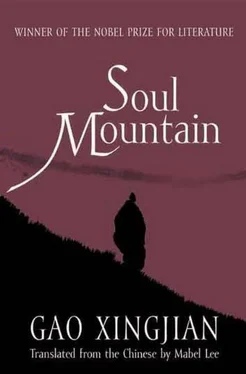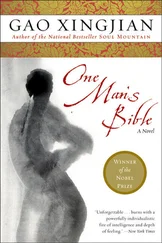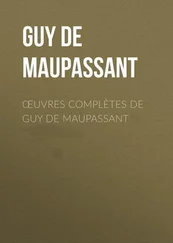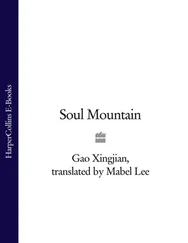The county produced a village scholar who was determined to make a name for himself. After spending half his life in the civil service examination halls, finally at the age of fifty-two he managed to get his name on the list of successful candidates, albeit amongst the names at the bottom of the list. After that he spent all his days waiting for an appointment, or even half of an appointment, in the bureaucracy. Unknown to him his unmarried daughter was embroiled in a romance with one of her young maternal uncles and was pregnant. The silly girl thought that by taking bezoar she could induce an abortion and instead had diarrhoea for two months. She got thinner while her belly got bigger. Eventually her parents found out and there was utter chaos. To salvage the family reputation the old man bestowed death upon her in the same manner as emperors would deal with corrupt officials and rebels — he had his unchaste daughter nailed alive into a coffin. This news spread far and wide and reached the county town where the magistrate, who was worried by the lack of morality in the locality and lived in constant fear of losing his black satin cap of office, seized upon the incident as being typical. He reported it to the provincial government which in turn reported it to the court.
The emperor, in the embrace of his favourite concubines, had for a long time not bothered with trifling court matters. However, one day when he was feeling bored he thought to ask about the common people. The court officials reported this interesting news item and when the emperor heard he gave an involuntary sigh: This is indeed a family of moral virtue. The words of the imperial sigh, of great import and immediacy, were conveyed to the provincial government. The governor immediately wrote instructions: There can be no delay with what the emperor has decreed. Erect a tablet and hang it high up to inform villagers far and wide. A fast horse took the despatch to the county yamen. The magistrate quickly sounded the gongs and got into his sedan chair, preceded by an official runner shouting to clear people off the road. How could this venal old Confucian scholar not be moved to tears as he knelt to hear the emperor’s decree. The magistrate then sternly declared: Each of the Emperor’s words, “Family of Moral Virtue”, is precious, now hasten to set up a memorial arch so that they will be recorded in perpetuity and never forgotten! His virtuous action had moved heaven and earth and brought honour and glory to his ancestors and the whole clan. The old man purchased on credit tens of baskets of grain to hire workers to prepare slabs of stone, and day and night he supervised the meticulous carving of the words. He laboured for half of the year and before the winter solstice, when the work was completed, he laid out a feast for his neighbours to show his gratitude. At the end of the year when the accounts were finalized, needless to say, the whole year’s income had been used to pay off debts, but he was still short by forty ounces of stamped silver ingots and seventeen strings of cash for the interest. He then caught a chill, became bedridden, barely managed to hang on through the first month of the New Year and died just before the planting of the new grain seedlings.
This memorial arch still stands at the east entrance to the village and lazy herd boys always hitch the ropes of the cows on them when they sneak off. However, when the director of the revolutionary committee came to inspect the countryside he found the wording on the horizontal tablet between the pillars quite inappropriate and had the secretary inform the local village secretary. It was changed to: “In Agriculture Learn From Dazhai”, and the couplet on the stone pillars: “Loyalty and Filial Piety Long Transmitted in the Family” and “Poetry and History Long Continuing for Many Generations” was changed to the slogans “Plant Fields for the Revolution” and “For the Greater Community not the Individual”. Who could have imagined that the Dazhai model would later be called bogus, that the fields would be returned to peasant ownership, that those who worked more would get more, and that nobody would pay any attention to the writing on the memorial arch? The more clever of the descendants of the family have gone into business and become rich, how could they spare the time to think about changing it all back?
At the back of the arch, at the door of the first house, an old woman sits pounding in a wooden bucket with a stick. A sandy coloured dog comes and hangs around, sniffing here and there. The old woman holds up the stick and savagely berates it: “I’ll burn you to death with the chilli if you don’t get lost!”
Anyway, you are not a sandy coloured dog, so you keep walking up, and address her.
“Venerable elder, are you making chilli sauce?”
The old woman neither says yes or no, just looks up at you then puts down her head and goes on pounding the fresh chilli in the bucket.
“Could you please tell me if there’s a place called Lingyan here?” You know that to ask her about a far away place like Lingshan would be a waste of time. You say you’ve come from a village called Mengjia down below, and people there say there’s a place called Lingyan up this way.
It is only then that she stops pounding to look the two of you over, especially scrutinizing her and then turning to you.
“Are the two of you wishing for a son?” she asks in an odd way.
She gives you a tug on the quiet. You’ve made a stupid blunder, so you go on to ask, “What’s Lingyan got to do with wishing for a son?”
“What’s it got to do with it?” The old woman raises her voice. “It’s a place women go to. They only go there to burn incense when they haven’t given birth to a son!” The old woman can’t stop cackling, it’s as if someone is tickling her. “So the young woman here is wishing for a son?” The old woman turns to caustically confront her.
“We’re sightseeing. We want to have a look everywhere,” you are obliged to explain.
“What’s there to see in this village? It was just the same a few days ago. Several couples from the city tormented the whole village with the havoc they created!”
“What did they do?” you can’t help asking.
“They brought along this electric box and made the mountains ring with the wailing of ghosts and the howling of wolves. They had their arms around one another right on the threshing square and they were all wriggling their bottoms. It was really wicked!”
“Oh, were they looking for Lingyan too?” You are becoming interested.
“Why do you keep asking about that demon-infested place Lingyan? Didn’t I tell you just now? That’s where women go to burn incense when they want to have a son.”
“Why can’t men go there?”
“If you’re not afraid of evil vapours then go. Who’s stopping you?”
She gives you a tug, but you say you still can’t understand.
“Then get yourself splashed with blood!” You can’t tell if the old woman is warning you or cursing you.
“She’s saying it’s taboo for men,” she explains to you.
You say there are no taboos.
“She’s talking about menstrual blood,” she whispers in your ear, warning you to leave right away.
“What’s so special about menstrual blood?” You say even dog’s blood doesn’t worry you. “Let’s go and see what this Lingyan really is.”
She says forget it and says she doesn’t want to go. You ask why she’s afraid, she says she’s afraid of what the old woman is saying.
“There aren’t all these regulations, let’s go!” you say to her, and then ask the old woman how to get there.
“Wicked people, let the demons get the pair of you!” the old woman says to your back, this time cursing.
She says she’s afraid, she has a premonition of something bad. You ask if she’s afraid she will meet a shaman. You tell her that in this mountain village all the old women are shamans and all the young women are seductresses.
Читать дальше
Конец ознакомительного отрывка
Купить книгу












